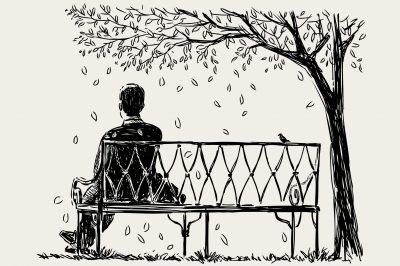Answer
Short Answer:
- We cannot, and should not attempt, to overcome solitude, because the attempt to do so leads to experiencing the pain of loneliness.
- Solitude is a necessary condition of being a subject in the world and the experience of being separated from the other.
………….
Solitude is a necessary condition of being a subject in the world and the experience of being separated from the other.
However, the form in which a person is aware of this solitude has two modes.
The First Mode of Solitude
The first mode is the conscious awareness of this solitude as the necessary prerequisite for the encounter with the other.
That is, we can only encounter the other when we accept that we are not it and the other is not us. In this encounter, we might experience meaning -the union with the other without each losing its integrity- or meaninglessness -the union with the other but losing the integrity of oneself-. From the first we might derive joy and from the later, sorrow.
The experience of joy will lead to the reaffirmation of the solitude of the self -separation- and to a renewed desire for union.
The experience of sorrow will lead to the negation of the solitude of the self and a desire for separation in order to reaffirm it.
The Second Mode of Solitude
The second mode of conscious awareness of solitude is one in which we are aware of solitude but as a condition that has to be overcome. That is, we want to encounter the other, not for a desire of union from which we derive meaning and reaffirms our condition, but for a union in which to overcome this condition.
But this is an impossibility, for the ontological condition of solitude cannot be overcome. The encounter with the other, in this second mode of solitude, is not the union of two integral parts, because we are either losing ourselves in the other or losing the other in ourselves.
There is an encounter -life is the constant unavoidable encounter with the other- but there is no union and therefore no meaning can emerge.
This second mode of solitude is what we often call loneliness. Loneliness is the expectation that something other than ourselves will remove the condition of solitude and the current lack of that thing.
We experience loneliness -or the current lack of that thing- as the acute perception of the passing of each moment in a painful manner. As if a dagger is being stabbed in our heart with each passing second.
The reason for this painful feeling might be that we are aware that every second that passes will not return and is a missed chance of finding that thing.
This is one of the defining characteristics of loneliness: the painful acute perception of the passing of each moment.
The Cure for Loneliness is The Embracing of Solitude
We cannot, and should not attempt, to overcome solitude, because the attempt to do so leads to experiencing the pain of loneliness.
We should embrace solitude as the starting point of our unavoidable task: the meeting with the other.
When this task is approached from the first mode of experiencing solitude, the union with the other creates meaning.
Meaning is experienced in the task as the absence of the perception of the passing moment.
If, as we have proposed, loneliness is the painful acute perception of the passing of each moment in the expectation of something other than ourselves that will remove the condition of solitude, then the cure for loneliness is not the attaining of that thing, for that thing will not remove the condition of solitude -which is an ontological necessity of being a subject in the world-.
The attaining of that thing will only lead to more loneliness, i.e. the realization that that thing did not remove our condition of solitude and the renewed search for something else that will do it.
Therefore, the cure for loneliness can only be in the embracing of solitude.
The Cure for Loneliness is The Embracing of Solitude first appeared at luqmannieto.com. It is republished here with kind permission.
Please continue feeding your curiosity, and find more info in the following links:

